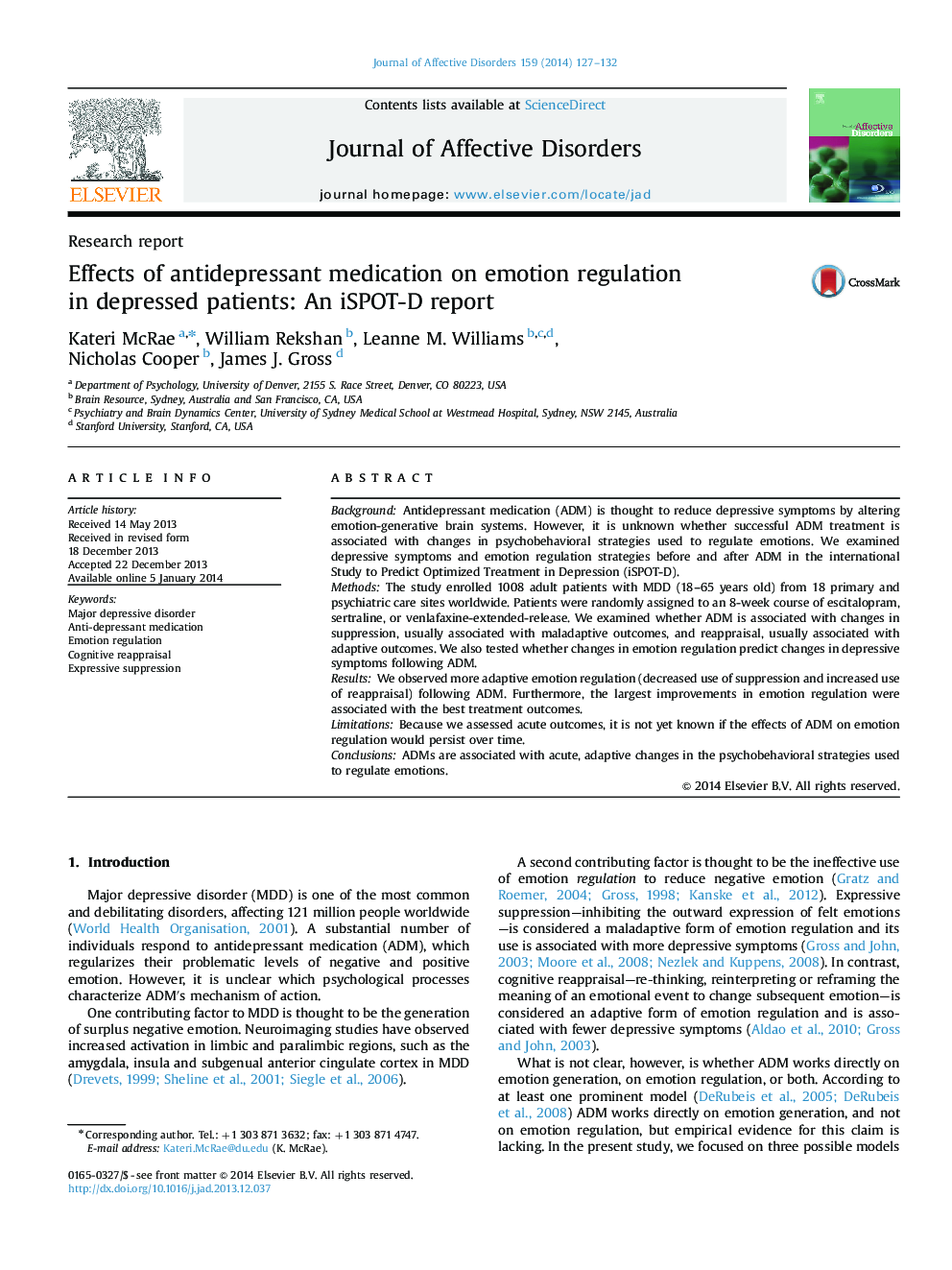| Article ID | Journal | Published Year | Pages | File Type |
|---|---|---|---|---|
| 4186031 | Journal of Affective Disorders | 2014 | 6 Pages |
BackgroundAntidepressant medication (ADM) is thought to reduce depressive symptoms by altering emotion-generative brain systems. However, it is unknown whether successful ADM treatment is associated with changes in psychobehavioral strategies used to regulate emotions. We examined depressive symptoms and emotion regulation strategies before and after ADM in the international Study to Predict Optimized Treatment in Depression (iSPOT-D).MethodsThe study enrolled 1008 adult patients with MDD (18–65 years old) from 18 primary and psychiatric care sites worldwide. Patients were randomly assigned to an 8-week course of escitalopram, sertraline, or venlafaxine-extended-release. We examined whether ADM is associated with changes in suppression, usually associated with maladaptive outcomes, and reappraisal, usually associated with adaptive outcomes. We also tested whether changes in emotion regulation predict changes in depressive symptoms following ADM.ResultsWe observed more adaptive emotion regulation (decreased use of suppression and increased use of reappraisal) following ADM. Furthermore, the largest improvements in emotion regulation were associated with the best treatment outcomes.LimitationsBecause we assessed acute outcomes, it is not yet known if the effects of ADM on emotion regulation would persist over time.ConclusionsADMs are associated with acute, adaptive changes in the psychobehavioral strategies used to regulate emotions.
